NOW - MATCHA WITH DISCOUNT!! Free delivery from 39,99 €
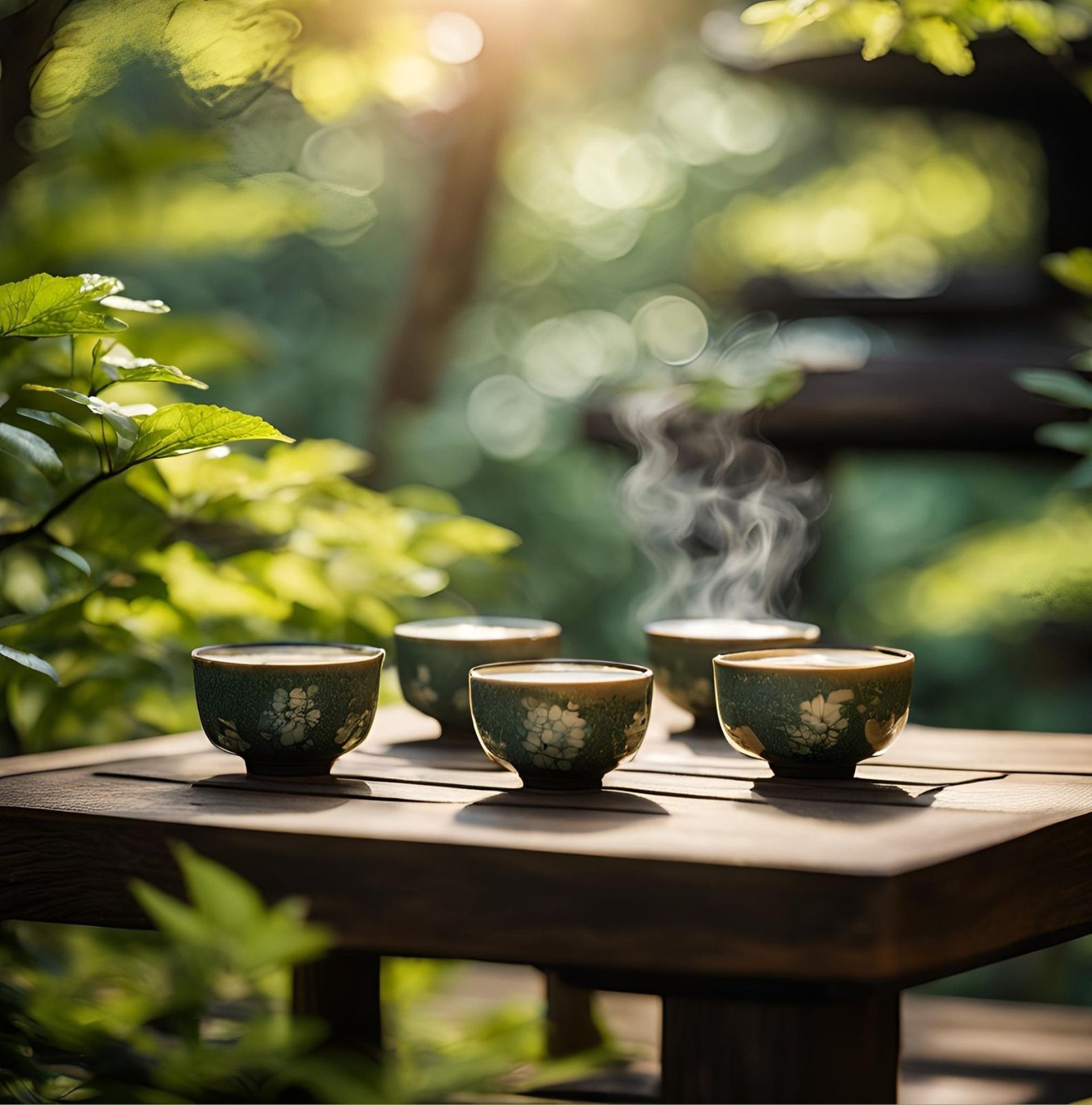
What is Japanese tea?
Japanese tea is not just a drink but also a cultural experience that reflects the country's values, aesthetics, and spiritual practices. Different regions of Japan are known for cultivating and producing specific types of tea: Uji (Kyoto) is famous for Matcha, Shizuoka for Sencha, and Kagoshima for both Sencha and Gyokuro.
The variety of tea flavors arises from different production methods and natural environments. Japan's four-season climate and diverse tea plants give Japanese teas their unique characteristics.
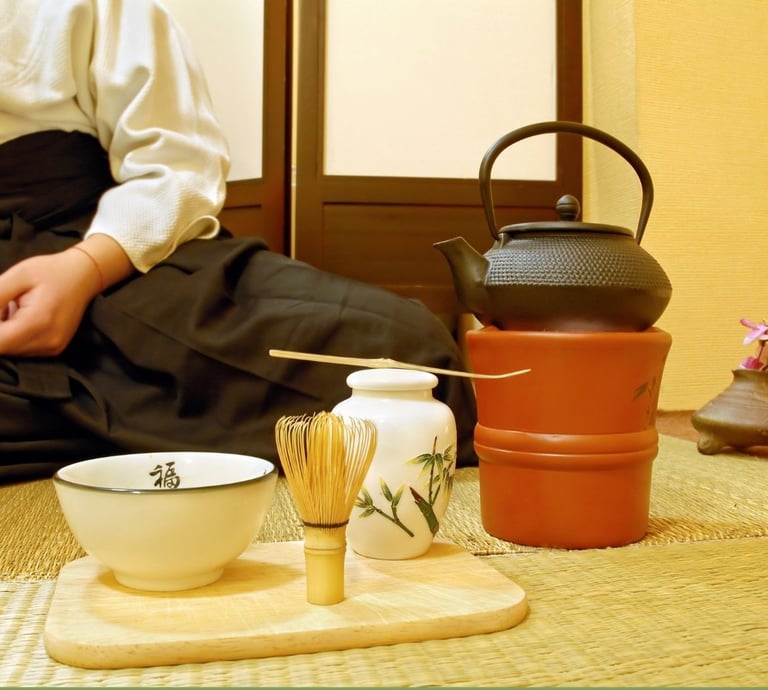


Types of Japanese tea
MATCHA
ground green tea - powder
Traditional Japanese tea, used in the tea ceremony, is increasingly popular worldwide due to its health benefits. It is green tea ground into a fine powder, harvested and processed in a special way: from April to May, tea plants are covered to shield them from direct sunlight for 2-3 weeks. This process increases the levels of chlorophyll and theanine in the tea leaves, making them bright green, rich in nutrients, and giving them a distinct umami flavor.
In Japanese, "umami" means "pleasant taste" or "depth of flavor," and it is made from 100% Japanese green tea leaves.
Higher-grade Matcha is produced from younger, more tender tea leaves (hand-picked), which is why it is usually more expensive. Young tea buds are used for Ceremonial Matcha, while medium and larger leaves are used for Culinary Matcha.
The highest-grade Ceremonial Matcha uses leaves from the first harvest of the year (in May), from a single origin, and they are hand-picked. These tea leaves are sweet, delicate, and vibrantly green. The flavor is unique, rich in "umami." There are also blends of leaves from the first and second harvests of the year, which are very close in taste, color, and characteristics to the highest grade.
MATCHA Culinary
Culinary matcha is best for baking and cooking and is ideal for Matcha lattes and smoothies.
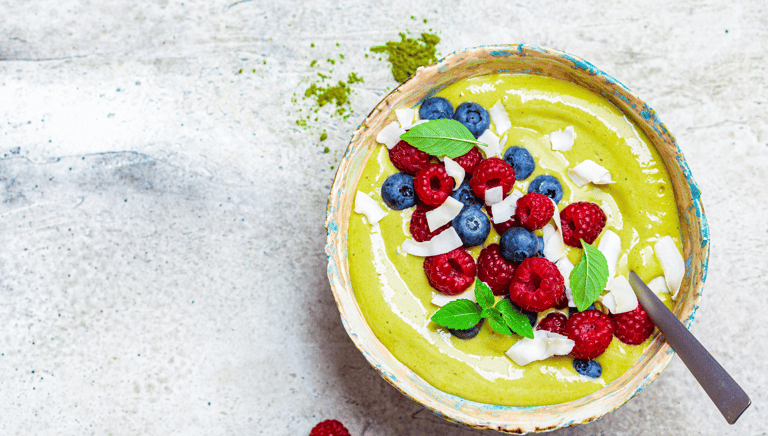

MATCHA Ceremonial
Ceremonial Matcha is meant to be enjoyed on its own, mixed with water or whisked into a froth, but it can also be used to create high-quality drinks like Matcha lattes or cocktails.
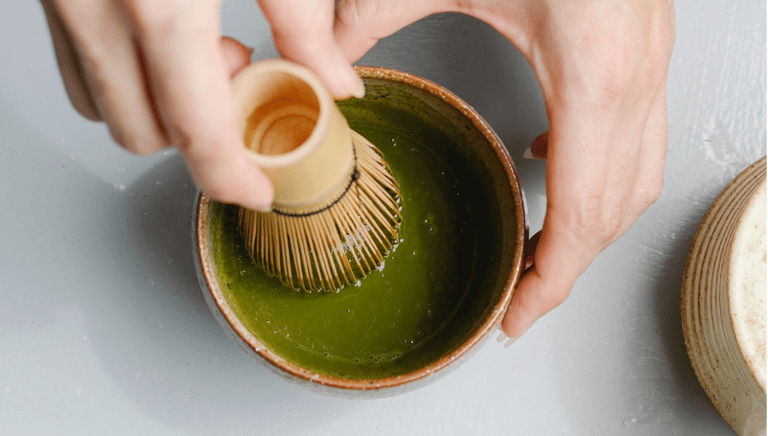

Another Japanese tea
green tea leaves
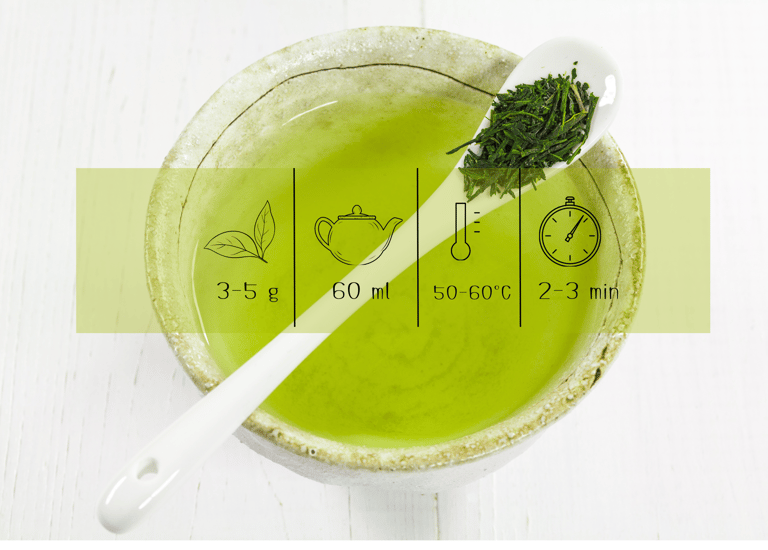

Gyokuro
The highest grade and most expensive Japanese tea. Its rich flavor, natural sweetness, and delicate aroma are created through special cultivation processes, where tea plants are shaded from direct sunlight for about 3 weeks as soon as the sprouts begin to emerge. The leaves for this tea are often hand-picked to select only the tenderest and highest quality ones. Gyokuro's unique taste is highly prized by tea connoisseurs.
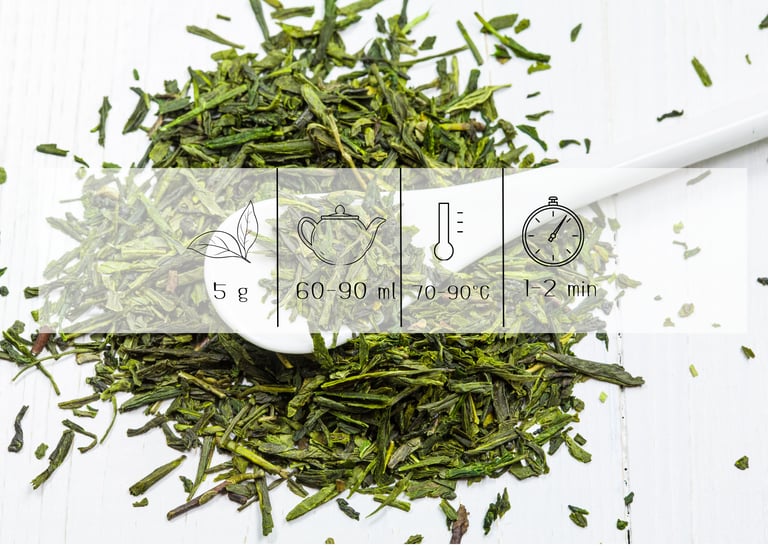

Sencha
The most beloved and popular type of green tea in Japan. Unlike other teas, freshly picked tea leaves are steamed, dried, and rolled into a needle shape, making it an unfermented tea. The tea is green with a yellowish hue, and it has a well-balanced combination of umami and bitterness.
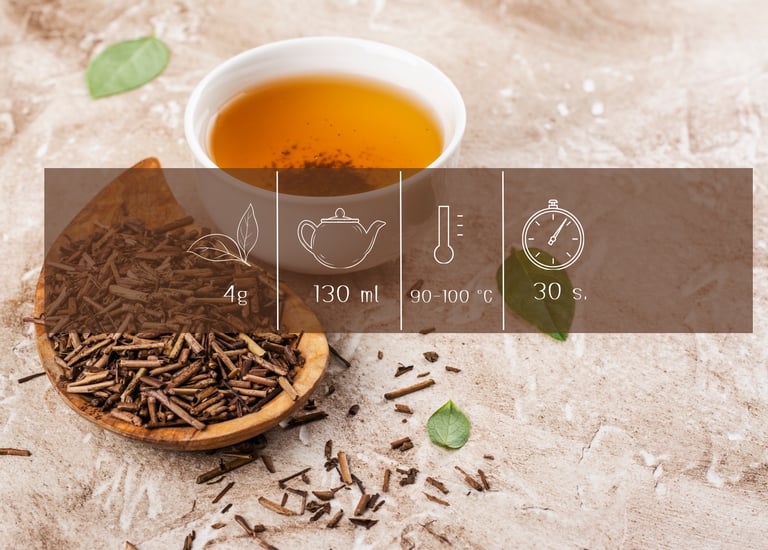

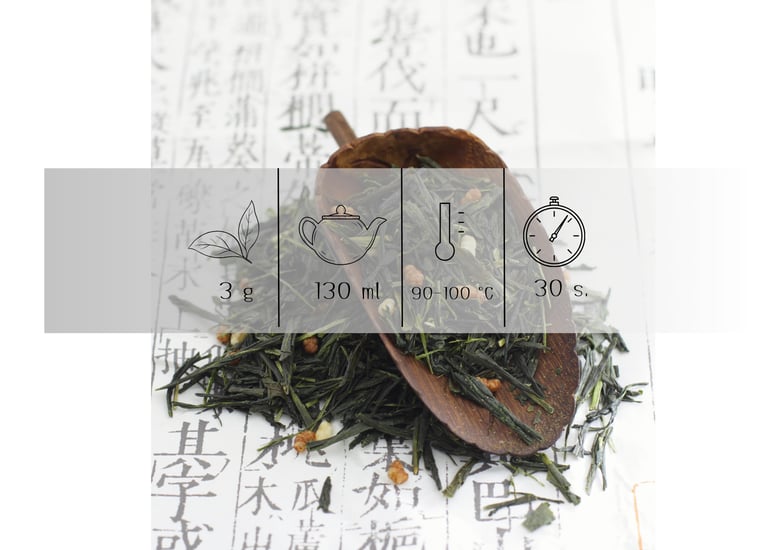

Hojicha
Green tea is produced by roasting it at high temperatures. The roasting process reduces the levels of tannins and caffeine in the leaves and diminishes bitterness, giving the tea a warm brown color. The flavor is sweet and mildly smoky, distinct from traditional green tea flavors. Hojicha has a very pleasant aroma, with hints of herbs and roasted nuts. Kuki-Hojicha has a lighter taste and a more elegant aroma compared to Hojicha.
Genmaicha
Genmai (brown rice) is one of the most popular types of Japanese tea due to its savory flavor— a combination of roasted rice aroma and refreshing green tea taste. Genmaicha is a unique Japanese green tea variety that consists of high-quality Sencha green tea delicately mixed with roasted brown rice. This unique blend creates an unparalleled, mildly nutty flavor and a pleasant, light aroma that pairs perfectly with the refreshing notes of green tea.

More about Matcha tea
How to prepare Matcha?
Preparing Matcha is not just a technique but a ritual that encourages mindfulness and enjoyment of the moment. Take the time to appreciate all the senses—from the aroma to the taste, as well as the environment you are in.
Remember that the flavor characteristics are influenced by the type of Matcha, its quality, growing conditions, harvest, the quality and temperature of the water used, and the right amount of tea powder. The most important thing is to experiment and find your preferred balance of flavors.
Matcha usucha
Before you begin, pour some hot water into the tea bowl and gently whisk it to warm and soften the whisk. Pour out the water and dry the bowl.
It is recommended to sift the Matcha powder through a fine sieve to eliminate any lumps, which will help achieve a smoother texture.
Add about 2 grams of Matcha powder.
Pour approximately 60 ml of hot water (70-80°C).
Whisk the Matcha with quick "W" shaped motions until a fine, creamy froth forms on the surface.
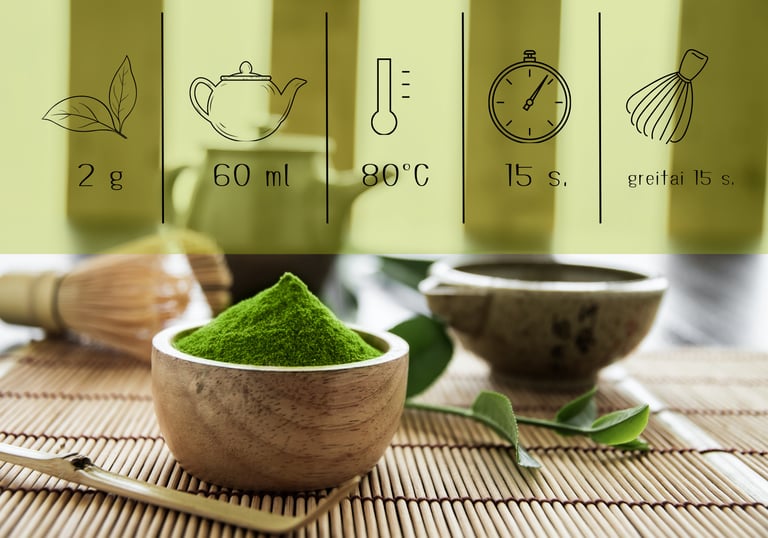

Matcha koicha
Before you begin, pour some hot water into the tea bowl and gently whisk it to warm and soften the whisk. Pour out the water and dry the bowl.
It is recommended to sift the Matcha powder through a fine sieve to eliminate any lumps, which will help achieve a smoother texture.
Add about 4 grams of Matcha powder.
Carefully pour about 30 ml of water at 70-80°C into the bowl with the Matcha powder.
Use a chasen whisk to slowly stir in circular motions until you achieve a thick and uniform texture.
Use your preferred plant-based milk or regular milk.
Froth the milk using a milk frother (from a coffee machine, handheld, or automatic frother).
In a separate bowl, whisk the Matcha until frothy (as you would prepare Matcha usucha) or use milk instead of water.
Pour the Matcha into the warm frothed milk.
Matcha latte
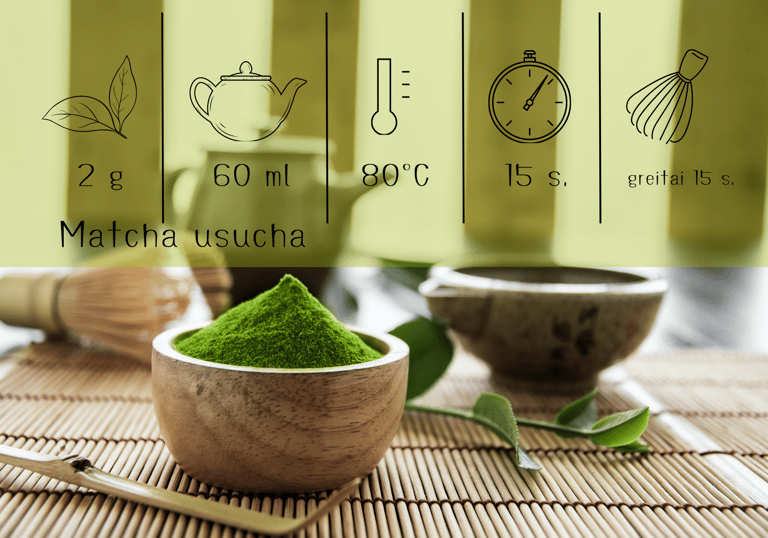

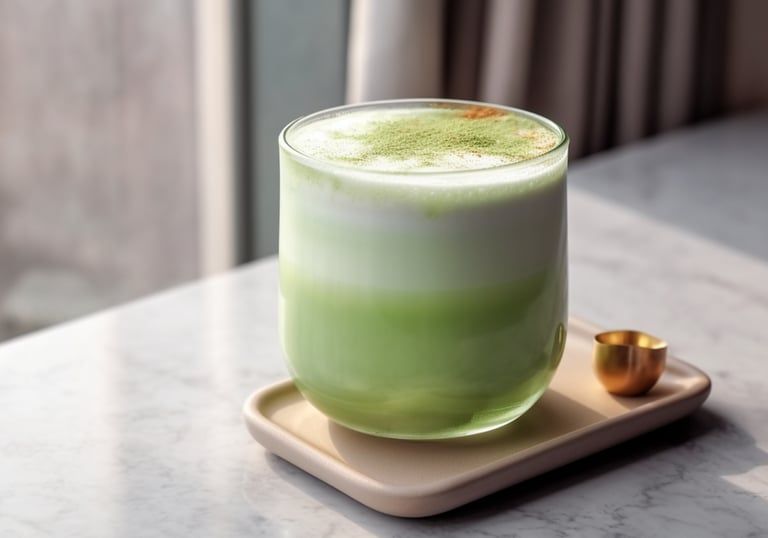

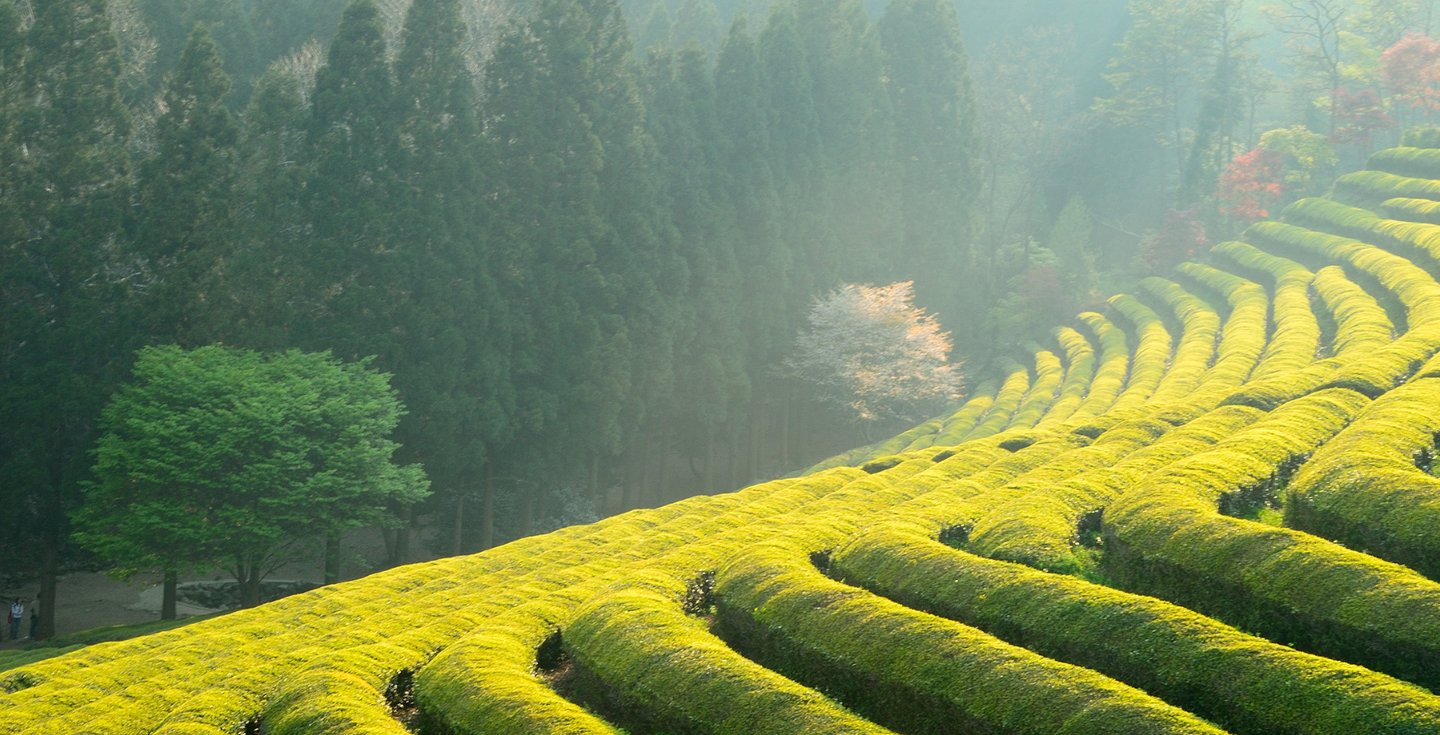

Benefits of Matcha
Provides Energy and Alertness: Matcha contains natural caffeine, offering sustained energy without sudden spikes and crashes.
Boosts Metabolism: Studies suggest that Matcha may help speed up metabolism and promote fat burning.
Strengthens the Immune System: Due to its high antioxidant content, Matcha helps strengthen the immune system and may protect against illness.
Improves Heart Health: Regular consumption of Matcha can help lower cholesterol levels and improve vascular function.
Promotes Relaxation: L-Theanine helps reduce stress and promotes relaxation while maintaining alertness.
Matcha benefits
High in Antioxidants: Matcha is rich in antioxidants, which help combat free radicals and protect the body’s cells.
Abundant in Chlorophyll: Due to Matcha's unique cultivation process, the tea leaves are rich in chlorophyll, which aids in more effective detoxification in the body.
L-Theanine: This amino acid helps reduce stress, improve concentration and mood, and supports healthy sleep.
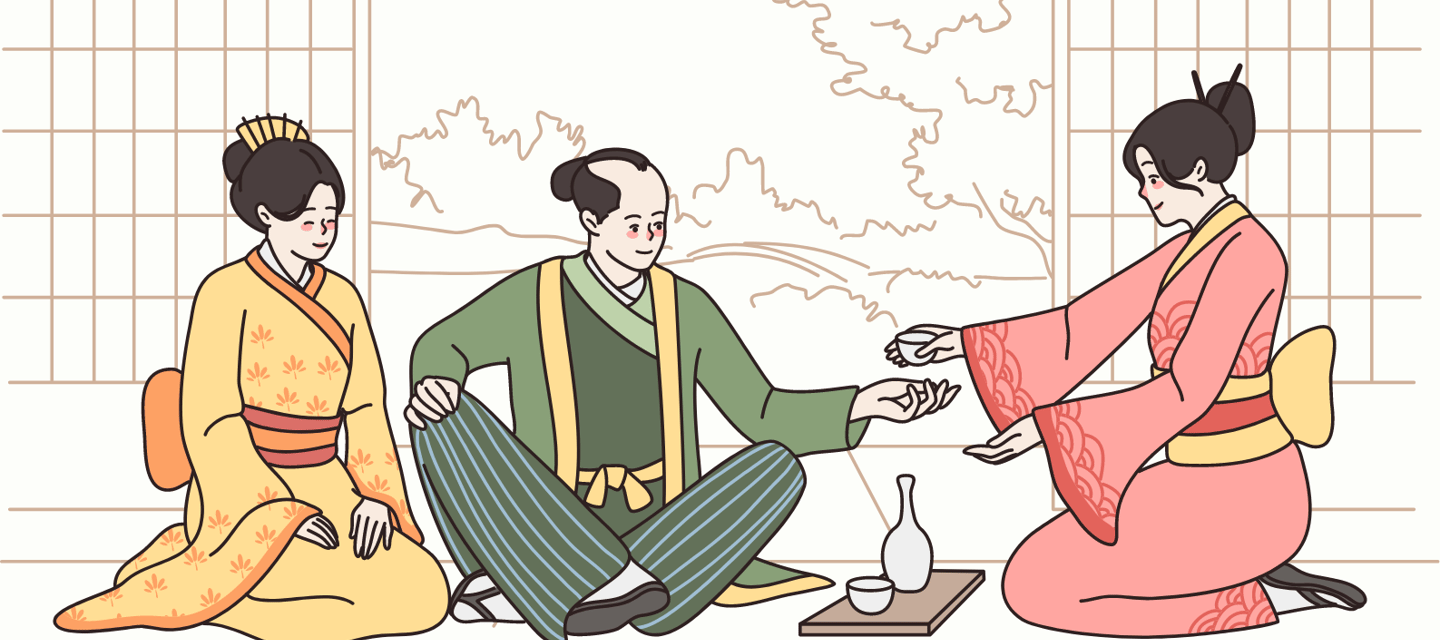


What is a Matcha Ceremony?
More than 800 years ago, a Japanese monk brought tea tree seeds from China to Japan, where tea was initially consumed only as a health drink. During the medieval period, tea ceremonies were common only among samurai and monks. The rules for tea drinking ceremonies as we know them today were established in 1570.
The Japanese tea ceremony, known as "Chanoyu" or "Sadō" (or "Chadō"), is a practice steeped in deep tradition and aesthetics, encompassing much more than just the act of drinking tea. This ceremony represents a subtle blend of art, philosophy, culture, and spiritual harmony that has evolved over centuries.
The ceremony typically takes place in a specially designated tea room or tea house, where every element—ranging from the arrangement of the space to each movement and conversation—is carefully considered. The host, known as the "Teishu," welcomes guests in a serene and intimate atmosphere, inviting them to detach from their daily lives and immerse themselves in the beauty of the moment.
At the heart of the ceremony is "Matcha"—finely ground green tea, whisked with a bamboo whisk and served in a small ceramic bowl. Each participant takes turns receiving the bowl, following specific rules that govern their movements, manners, and even conversation topics. A key emphasis of the ceremony is the simplicity and naturalness of these elements, designed to create harmony among people, the space, and the tea itself.
Follows us
Customer service
Newslatter
info@dekoti.lt
+37068444219
© 2024. All rights reserved.
Purchasing and information
